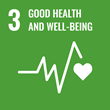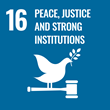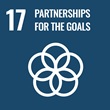
Project information
Gut OncoMicrobiome Signatures (GOMS) associated with cancer incidence, prognosis and prediction of treatment response
(ONCOBIOME)

- Project Identification
- 825410
- Project Period
- 1/2019 - 6/2025
- Investor / Pogramme / Project type
-
European Union
- Horizon 2020
- Health, demographic change and wellbeing (Societal Challenges)
- MU Faculty or unit
-
Faculty of Science
- Mgr. Eva Budinská, Ph.D.
- Mgr. Anna Pačínková, Ph.D.
- Maria Persico, PhD
- Viacheslav Petrov
- doc. Ing. Vlad Popovici, PhD
- Luis Fernando Santa Guzman, PhD
- Cooperating Organization
-
Masaryk Memorial Cancer Institute Brno
Ludwig-Maximilians-Universität München
University of Cambridge
Philipps-Universität Marburg
Universita degli Studi di Trento
Karolinska Institutet
Institut national de la santé et de la recherche médicale
Charité - Universitätsmedizin Berlin
INSTITUT GUSTAVE ROUSSY
- Responsible person Prof. Laurence Zitvogel
Radboud University Medical Center
EverImmune
Fondazione IRCCS Istituto Nazionale dei Tumori
Italian Institute for Genomic Medicine
UNICANCER
GBG Forschungs GmbH
Stichting Radboud universitair medisch centrum
Centre hospitalier de l'Université de Montréal
Beyond its role in regulating multiple physiological functions that impact health, the intestinal metagenome is implicated in cancer initiation, progression and responses to therapies, even for extraintestinal neoplasia. Hence, there is an urgent need to fully identify and functionally characterize minimalist commensal ecosystems relevant to cancer, with reliable and robust methods, to validate cancer-associated gut microbiome fingerprints of high clinical relevance, and to develop diagnosis tools that will become part of the oncological arsenal for the optimization and personalization of therapy. Based on retro-and pro-spective studies, with large discovery and validation cohorts enrolling >9,000 cancer patients across 10 countries, ancillary to ongoing innovative clinical trials or FDA/EMA approvals across 4 frequent cancer types, ONCOBIOME will pursue the following aims: 1/ identify and validate core or cancer-specific Gut OncoMicrobiome Signatures (GOMS) associated with cancer occurrence, prognosis, response to, or progression on, therapy (polychemotherapy, immune checkpoint inhibitors, dendritic cell vaccines) or adverse effects, 2/ decipher the functional relevance of these cancer-associated gut commensal ecosystems in the regulation of host metabolism, immunity and oncogenesis, 3/ integrate these GOMS with other oncology hallmarks (clinics, genomics, immunomics, metabolomics) 4/ design optimal companion tests, based on those integrated signatures to predict cancer occurrence and progression. With high carat interdisciplinary experts, ONCOBIOME expects to validate cancer or therapy-specific Gut OncoMicrobiome Signatures (GOMS) across breast, colorectal, melanoma and lung cancers adjusting for covariates, to unravel the mode of action of these GOMS in innovative platforms, thus lending support to the design of cancer preventive campaigns using well characterized pre-and pro-biotics.
Sustainable Development Goals
Masaryk University is committed to the UN Sustainable Development Goals, which aim to improve the conditions and quality of life on our planet by 2030.
Publications
Total number of publications: 5
2024
-
An invasion front gene expression signature for higher-risk patient selection in stage IIA MSS colon cancer
Frontiers in Oncology, year: 2024, volume: 14, edition: April 2024, DOI
2023
-
A Fecal MicroRNA Signature by Small RNA Sequencing Accurately Distinguishes Colorectal Cancers: Results From a Multicenter Study
Gastroenterology, year: 2023, volume: 165, edition: 3, DOI
-
IntOMICS: A Bayesian Framework for Reconstructing Regulatory Networks Using Multi-Omics Data
Journal of Computational Biology, year: 2023, volume: 30, edition: 5, DOI
2022
-
Using empirical biological knowledge to infer regulatory networks from multi-omics data
BMC Bioinformatics, year: 2022, volume: 23, edition: 1, DOI
2021
-
Colorectal Tumour Mucosa Microbiome Is Enriched in Oral Pathogens and Defines Three Subtypes That Correlate with Markers of Tumour Progression
Cancers, year: 2021, volume: 13, edition: 19, DOI




